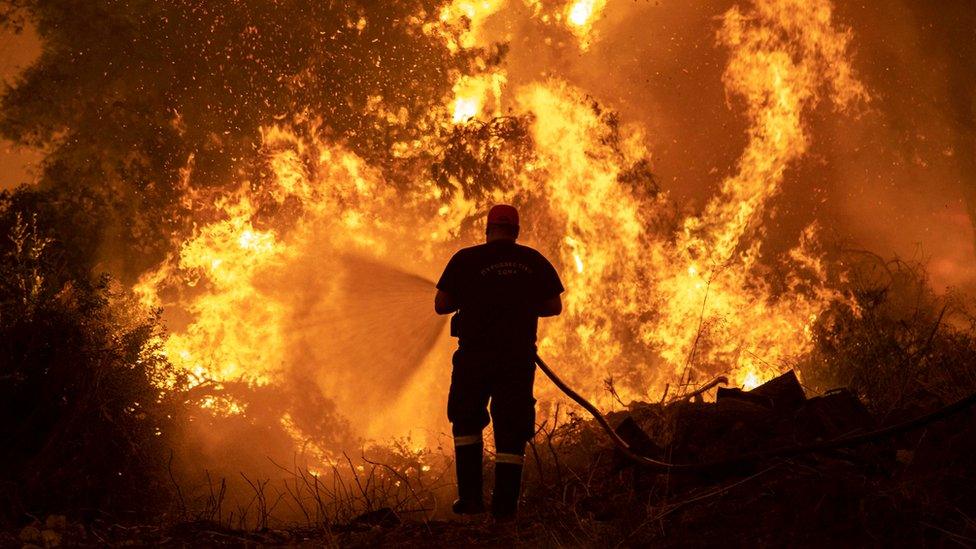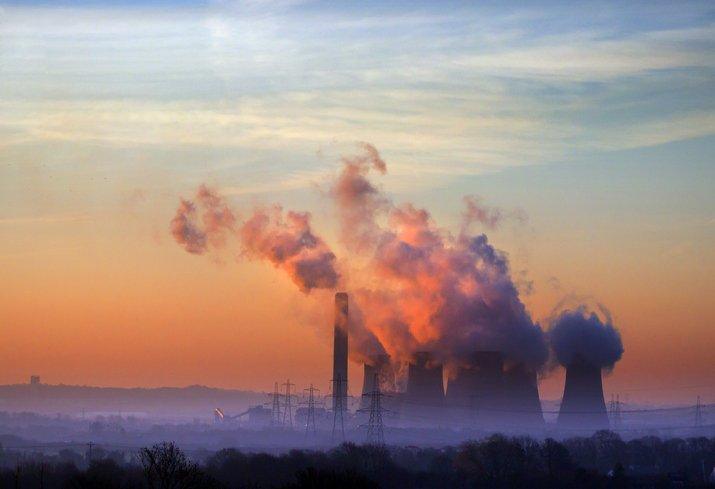Global warming: Past seven years hottest recorded according to EU data
- Published
- comments

Europe and other parts of the world saw blisteringly hot summers last year
The last seven years have been the hottest ever recorded, according to data from the European Union's (EU) satellite system.
The Copernicus Climate Change Service, an EU organisation that monitors and analyses our changing climate, also said that 2021 was the fifth hottest year ever.
It was also Europe's warmest summer on record, and the soaring temperatures led to wildfires affecting countries such as Turkey, Greece, Italy, Tunisia and Algeria.
Although governments around the world have pledged to keep global temperatures from rising further than 1.5 degrees Celsius, experts warn that without drastic action taken now, we can expect lots more of this kind of weather in future.

A firefighter tries to extinguish a wildfire burning in a Greek village last year
The director of the Copernicus Climate Change Service Carlo Buontempo said: "These events are a stark reminder of the need to change our ways, take decisive and effective steps toward a sustainable society and work towards reducing net carbon emissions."
More data about 2021's temperatures will be released in the coming days from other agencies including from Nasa and the UK's Met Office.
The year started off cooler than normal due to a weather system called La Niña
This is when cold waters rise to the surface of the sea, which leads to colder weather
However in the summer months, above average temperatures were recorded all over the world, such as on the west coast of the US and Canada, north-east Canada and Greenland, large parts of north and central Africa, and the Middle East
In Sicily, 48.8C degrees was reported, breaking Europe's record for highest temperature by 0.8C
The weather was also incredibly wet in Europe in 2021 - Germany, Belgium and the Netherlands all saw devastating floods
Why is this happening?

Global warming is caused by high levels of greenhouse gases being released in our atmosphere, which keeps heat in and warms the planet up.
And Copernicus have said that the concentration in the earth's atmosphere of two gases that significantly contribute to climate change rose in 2021.
Carbon dioxide concentrations reached 414.3 parts per million last year, which was a similar rate of increase as recorded in 2020.
However, scientists said that methane levels in the atmosphere rose sharply to 1,876 parts per billion, which they've said is concerning.
- Published29 August 2022

- Published15 November 2021

- Published4 January 2022

